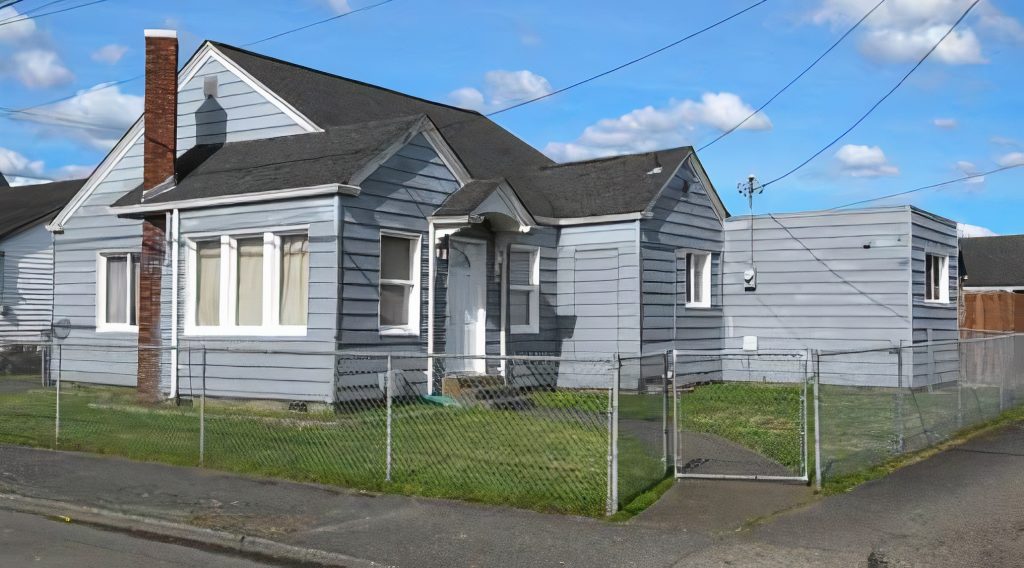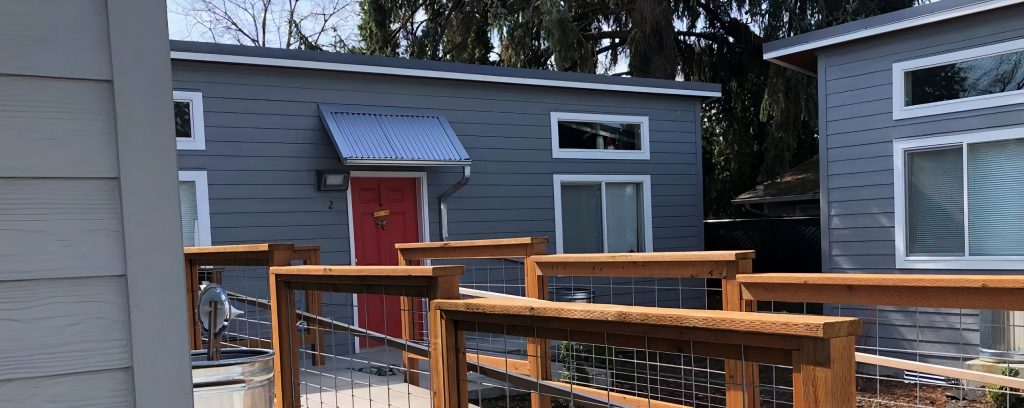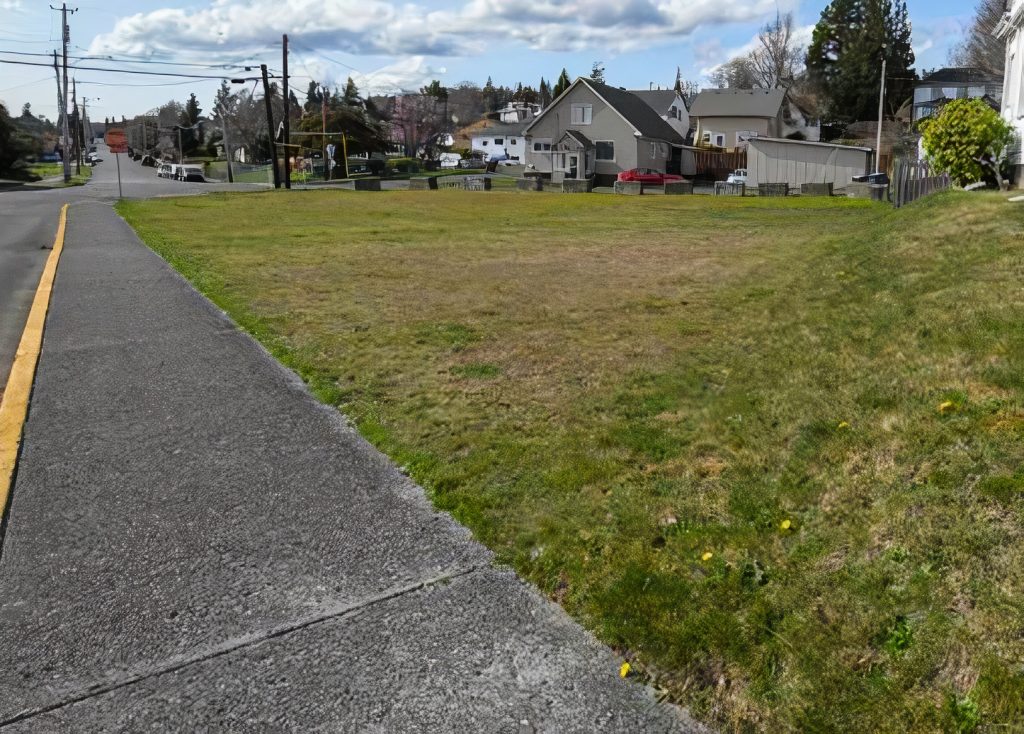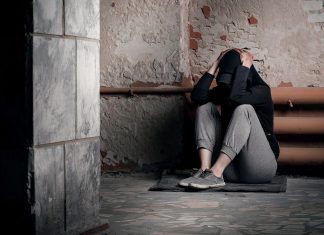low-income income individuals and families. To succeed these households may need rental assistance and other supportive services. The National Low Income Housing Coalition says that nationwide there is a shortage of 7.3 million low-income rental homes that are both affordable and available. With this in mind, Coastal Community Action Program (CCAP) is working to provide more options for residents of Grays Harbor and Pacific counties.
In our state, the Association of Washington Housing Authorities explains that families typically wait more than three years before they can access public housing. These statistics reflect the reality CCAP fights so hard to address when it supports households experiencing homelessness and housing instability.

CCAP Creates Housing Stability in Grays and Pacific Counties
“As a coordinated entry partner for Grays Harbor and Pacific counties, CCAP helps the unhoused access more than just housing services,” says Greg Claycamp, program director for CCAP’s Housing and Community Services. “Despite being in relatively rural and sparsely populated counties, CCAP currently sees 50-60 new assessments each month and regularly assists between 400 and 500 households with their Pathways care coordination program.”
Claycamp and his team are dedicated to their mission. CCAP outreaches to encampments and other locations to engage the unsheltered population. They hand out survival kits in cold weather months and host numerous shelter facilities for youth, adults and families across the housing spectrum.
CCAP operates a youth shelter in Aberdeen as well as a family shelter program that is open to any combination of adults with a minor child. “Once approached,” says Claycamp, “we try to enroll them in the housing program and benefits that fits the individual best.” This can be via the state’s Housing and Essential Needs (HEN) Program, a Medicaid-funded program called Foundational Community Supports (FCS), or a number of other programs providing rental assistance and supportive services to adults, youth, young adults and persons impacted by chronic mental health challenges.
For younger applicants there’s a 10-bed transitional housing unit opening in Hoquiam this spring with dorm-style living spaces and on-site resident advisor. Young adults can stay for up to two years while in school or job hunting. For youth and young adults aged 13-24, they also partner with Willapa Behavioral Health to help young people and their families reconcile.
CCAP is committed to supporting families and individual impacted by incarceration. For example, CCAP provides a Community Courts program to help persons who choose to engage in supportive services and other court-mandated activities as an alternative to incarceration. CCAP supports persons who are impacted by substance use to break the cycle of recurrent arrests through its Jail Reentry program in Gray Harbor County. Both programs connect people with treatment providers, support groups and eventual housing.

Housing Programs in Grays Harbor and Pacific Counties Meet Needs
“Coastal Community Action Program engages everyone,” says Claycamp, “even when a rent subsidy isn’t immediately available. Our goal is to help people identify and address all of the areas in their lives that contribute to housing instability, so they can be successful when they secure housing.”
CCAP is part of a network of Foundational Community Supports programs with the state and Medicaid. “Supported housing and employment services can be billed to Medicaid,” explains Claycamp. “If people have stable housing and meaningful work, their overall medical costs go down over time.”
Whether chronically homeless, defined as unhoused for more than 12 months, or in a diversion program for those at risk of losing their residence, CCAP takes direct requests from families and individuals as well as referrals from partner agencies like the Area Agency on Aging. Even our senior population needs a little extra help these days. “We provide a lot of services to older adults,” Claycamp says. “Things like nutrition, in-home care and transportation.”
But there are plenty of challenges along the way. “There’s very little stock and very high rents,” Claycamp shares. They employ two landlord liaisons to engage landlords and access more market rental properties.
CCAP is also expanding its own housing portfolio. In Grays Harbor County, it is building 36 new two-bedroom modular units. CCAP will also soon start renovating five scattered-site houses. Each of these five-bedroom homes supports persons experiencing chronic mental health challenges. CCAP partners with Behavioral Health Resources to support three of those homes, while the other two are operated directly by CCAP to provide transitional housing for persons exiting from institutional placements.
In Pacific County, CCAP is in the process of purchasing a four-unit property to use as family shelter and transitional housing. CCAP also received funding to build a new laundry and hygiene facility on the site, for use by the unsheltered community. CCAP hopes to open the new shelter in the late Summer or Fall of 2023.

Building Resilient, Sustainable Housing for Pacific and Grays Harbor Counties
This spring CCAP and the Moore Wright Group were awarded more than $8 million by the Washington Department of Commerce (DOC) to work on projects like these. CCAP’s portion will develop a four-unit in Long Beach that will serve people who are homeless. CCAP was also awarded additional funding for a 24-MOD Housing project in Grays Harbor County which is coming from HTF-Housing Trust Fund, and will use the Evergreen Sustainable Development Standard for that project.
To keep with CCAP’s passion for sustainable, resilient, low-cost maintenance buildings, CCAP has retrofit older properties and is building new high efficiency units. All units seek to include Evergreen Sustainable Standards when available as well as top level bandwidth for onsite security and internet capability. “New units are designed with the future in mind,” says CCAP CEO Craig Dublanko, “using green building designs and efficiencies, high-speed internet connectivity and even building near bus routes. Our agency has a commitment to creating sustainable, efficient and long lasting units for our community.”
“CCAP is leading the way in improving the difficult housing situation in Grays Harbor County”, said Mike McNickle, director of Grays Harbor County Public Health. “Through the development of more low-income housing, CCAP is helping to solve one of our areas most pressing issues that will have a positive effect throughout the entire community.”
Public Health Housing Program Coordinator Kimberly Stoll-French agrees. “I appreciate the creative approach CCAP has taken to support the residents of Grays Harbor County,” she says. “There is a fragile balance between housing stability and homelessness that many are unaware of until services are needed. I’ve witnessed a remarkable level of compassion and willingness to be vulnerable among the Care Coordinators on their team, and at the end of the day, I believe that connection is what truly makes the difference.”
To learn more about CCAP’s work, follow them on Facebook or email info@coastalcap.org with questions. Check out their many housing and energy services at their Coastal Community Action Program website and reach out if you or someone you love is facing the shadow of homelessness today.
Sponsored












































